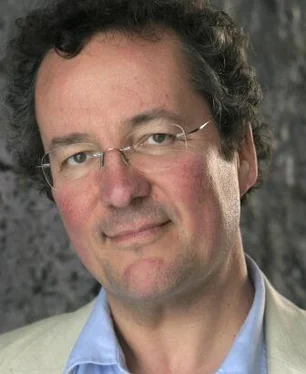‘Where did she and her mistress travel from?’
‘They live south of here, but they had gone to Orthez. I returned with them yesterday. Doña Stefanía had been travelling with a band of men, but they left us the day before yesterday. I find it hard to understand how men could desert two women like that. For the sake of their own mothers, for the sake of Holy Mother Mary Herself, they should have protected my Joana and her lady. But at least I was there, and for that I should be grateful. Although now …’
Frey Ramón drained his cup and refused when Simon offered to refill it. ‘I must go. I shall pray for my poor Joana in my chapel. I would not go to pray for her drunk. I thank you both for your kindness.’
Standing, he bowed, turned and walked away, crossing the square. Baldwin and Simon watched, and neither spoke a word as the man disappeared from sight.
Later, when the two were rolled up in blankets, having negotiated a space for themselves in an old stable at an inn, Baldwin snoring gently, Simon staring up at the ceiling, pensively considering reasons for a woman to be killed and her features so comprehensively ruined, Frey Ramón sat before the altar in his Order’s chapel, and bent his head. He wept. At his side, the chapel’s priest sat and prayed with him, stolidly speaking the prayers of the services for the dead woman, occasionally glancing sideways at Ramón as the man’s grief overwhelmed him. Once he put a hand out to touch Ramon’s shoulder, but the knight shrugged it away.
There was no end to Ramon’s grief. Confused, shocked, seeing the whole of his future life destroyed, he was unsure what he should do after the terrible events of the day.
‘God, give me peace!’ he begged, but he knew that God couldn’t help him. The answers He must give could only lead to Ramon’s destruction.
It was almost dawn when he stood and made his obeisance to the cross. He would have to leave. There was no place in Compostela for a man like him. He had made his decision. He would go to Portugal and hide himself there.
After he had gone to his room and collected his few belongings, he returned to the priest and paid him for his vigil, then gave him a little more to arrange for the burial.
‘You must see that she is treated honourably,’ he stated. ‘Have her buried like an honourable woman. A good, kindly woman. A woman who was loved,’ he added, his voice choked.
Then he turned on his heel and walked from the place, never to see it again.
Simon woke in the middle watches of the night, groggy and chilled, with the faint sense that something was wrong. He had to pull his cloak back over himself, from where it had fallen.
Their room was an old wine storage barn, containing huge casks of wine, which was occasionally used for guests when there was a glut of visitors. Simon and Baldwin were not the only men staying; there were several other bodies lying rolled in cloaks on the floor.
The barn was a good forty feet long, and the roof was more than ten feet above their heads, giving a feeling of airiness or, as Simon reckoned at this godforsaken time of the night, of draughtiness. He could feel a rumbling in his belly. His bowels were unsettled, and he wondered if it was the rich food which he and Baldwin had tried the night before. One more piece of information which Baldwin had cheerfully shared with him was that people who travelled abroad could contract diseases from the bad air. Baldwin had seen it often in the warmer climates, so he said. Simon had no wish to go and experiment with the garderobe here in the dark, but he was uncomfortably aware that he might soon have little choice.
It did not appeal. The toilet here was like others he had seen in England, but the whole structure looked extremely dilapidated. In his home, that didn’t matter. The outhouse was a light shack which was positioned over a hole in the ground, and every few weeks a new hole would be dug and the shack lifted over it. The muck could be dug out and used as manure, while a fresh crop was collected. Here, though, the toilet was a wooden projection from the wall of the barn. Because the barn had been built on a hillside, although the guests entered from the road’s level, when they walked out to the far side of the barn, they were one storey above the roadway. Here the owner had constructed a room which was in reality little more than a series of rotten-looking planks placed over the void and supported by the building on the opposite side of the alley. The intrepid person who wished to make use of this convenience, must dangle their buttocks over one of the two holes, trusting to faith that they would hit the target, which was a large wooden enclosure into which the muck from the cowshed underneath the wine store also drained.
Simon was not keen to experience this in the pitch dark, and he turned his mind to other matters in an attempt to forget the growing urges.
The dead woman had been murdered in a particularly brutal manner. It was possible that her lover could have done this. Ramón was her lover: it could have been him. Then there was the knight Don Ruy, who had followed her from the city. He could have been jealous because the girl shared her favours with Ramón and not with him. Or it could have been a passer-by, who had seen Joana there and decided to force himself on her.
Lost in thought, Simon yawned lengthily. Soon his breathing calmed and he slept once more.
In a large communal guestroom in the Cathedral’s precinct, Doña Stefanía lay wide awake.
She was in a big, comfortable bed with a soft, plump mattress, trying to ignore the snoring coming from the far side. Her bedfellow was a whuffling, snuffling heavy breather, whose periodic snivels were an atrocious interruption to a lady who was used to the privacy of her own room. Doña Stefanía was tempted to heave a shoe at her.
Still, before long she would be able to return home to the convent at Vigo. That was the thought that consoled her through the long hours of darkness. At least when she got there, she would be able to set up the new chapel, with the Bishop’s help, and display the relic.
It was all up to the Bishop. He might be reluctant. It had been known before. Sometimes a churchman was not happy to thieve another’s relic. Not often though, she reminded herself. A man would be a fool to thwart the Saint’s own will. In fact, no man would dare. She wasn’t sure, but the Doña had the impression that the Bishop of Compostela was not the sort to worry himself about that argument. He would reason that if he decided that the relic was not for Vigo, the Saint was making his opinion felt. However, it would be a big feather in his cap, were he to retain the thing. If it added to Doña Stefania’s prestige, it likewise added to his own.
She was content with that. The thing must remain with her, at all costs. It was the only way to ensure that her convent survived.
A particularly loud snuffle made her bite back a caustic response. If only Joana was still here! She could have taken up one of the spaces in the bed, and the two of them together would have been intimidating enough to drive off another, unwanted companion.
Poor Joana. All this was her plan, and now she would never see it come to fruition. She had been so keen for it to happen. Yet all had started to go wrong when she met Ramón. From that day on, Joana had grown more peevish and difficult – perhaps because of something he knew about her?
The thought was worth considering. He certainly seemed to have some sort of hold over her. Perhaps that was the matter: he was a difficult, jealous lover. Perhaps he wanted more than she was prepared to give him, or had decided to take more than she wanted to give. What if she had gone to the meeting with Ruy, and Ramón saw her return? Would he not be enraged to think that his woman could have gone secretly consorting with another knight? It was eminently possible.
Читать дальше












